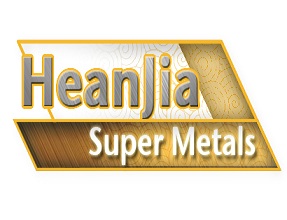You are here: home > Learning Gallery > Nickel and Nickel Alloys
Product (738)
- Pure Nickel Products (38)
- Incoloy Products (74)
- Inconel Products (72)
-
FeCrAl Product
(99)

-
Nichrome Products
(68)

- Monel Products (36)
- Hastelloy Products (49)
- Nickel Iron Alloy Product (59)
-
Nickel Copper alloys
(47)

- Nonferrous Metal Product (27)
-
Resistance Wire
(90)

- Stainless Steel Product (42)
- Mesh Demister (20)
- Others (17)
Product Forms (14)
Quality Certificate (11)
Learning Gallery (30)
Incoloy News (9)
Inconel News (22)
Molybdenum News (7)
Nikrothal News (4)
Nichrome News (13)
Titanium News (2)
Nickel News (8)
Alloys House (30)
Tools (27)
Nickel alloy News (30)
Latest Buzz (30)
nickel chrome copper iron alloys news (28)
Credit Report
Products Index
Company Info
Heanjia Super-metals Co., Ltd. [China (Mainland)]
Business Type:Manufacturer, Trading Company
City: Beijing
Province/State: Beijing
Country/Region: China (Mainland)
Learning Gallery
Nickel and Nickel Alloys

Nickel and Nickel Alloys
Nickel is a versatile, highly corrosion resistant element that will alloy with most metals. Due to its corrosion resistance, nickel is used to maintain product purity in the processing of foods and synthetic fibers. It is highly resistant to various reducing chemicals and is unexcelled in resistance to caustic alkalies. In addition, nickel has good thermal, electrical and magnetostrictive properties. Relatively high thermal conductivity of this metal has lead to its frequent use for heat exchangers
Commercially pure or low-alloy nickel may contain very small amounts of alloying elements to absolutely none. By contrast nickel alloys contain significant amounts of added elements. Nickel and nickel alloys are both non-ferrous metals that are useful in a range of applications, most of which involve corrosion resistance and/or heat resistance.
Nickel Availability
Xinxing supplies Nickel and Nickel Alloys in the form of plate, sheet, strip, wire; wire woven mesh, Expanded Nickel Mesh Sheet.
In what applications is Nickel used?
- Chemical and petrochemical processing
- Electronics
- Processing equipment for maintaining product purity in handling foods, synthetic fibers and alkalies.
What are the Characteristics of Nickel?
- Corrosion resistance
- High Electrical Conductivity
- High temperature resistance
Nickel Alloy alternatives to trademark "brand" names.
- Alloy C276 alternative to Hastelloy C-276 and Hastelloy C
- Alloy B-2 alternative to Hastelloy B-2
- Alloy C-22 alternative to Hastelloy C-22
- Alloy X alternative to Hastelloy X and Inconel HX
- Alloy 20 alternative to Carpenter 20 and Incoloy 20
- Alloy718 alternative to Inconel 718
- Alloy 800 alternative to Incoloy 800
- Alloy 800H/HT alternative to Incoloy 800H/HT
- Alloy 400 alternative to Monel 400
- Alloy K-500 alternative to Monel K-500
- Alloy 625 alternative to Inconel 625
- Alloy 600 alternative to Inconel 600
- Alloy 601 alternative to Inconel 601
Pre Page:
Monel
Next Page:
What is Nickel?



